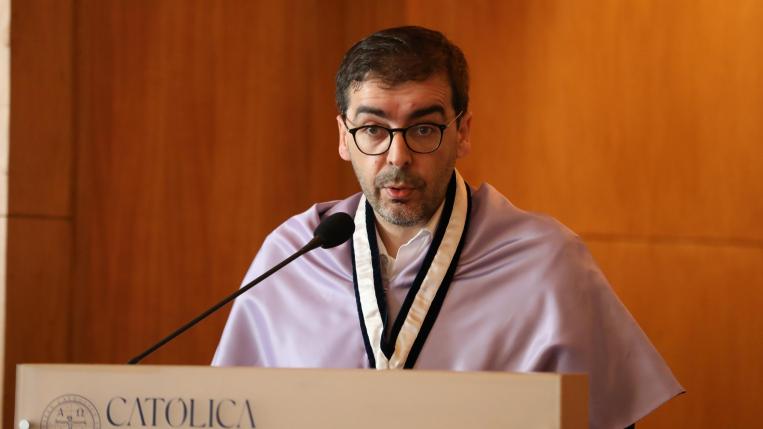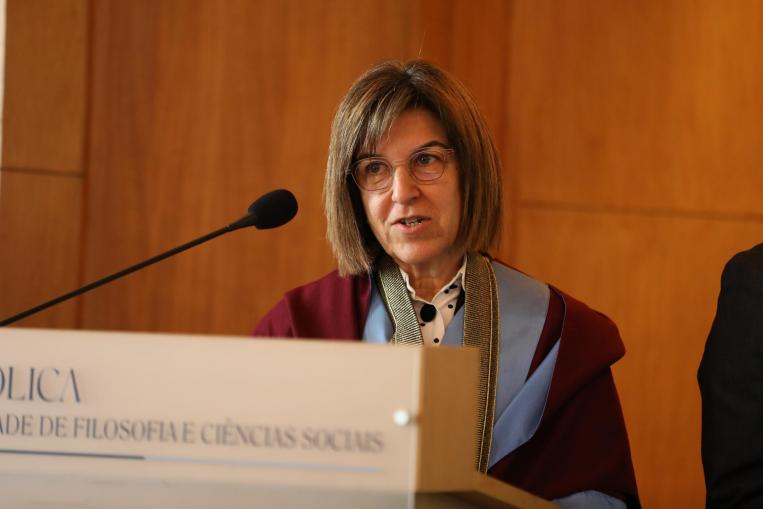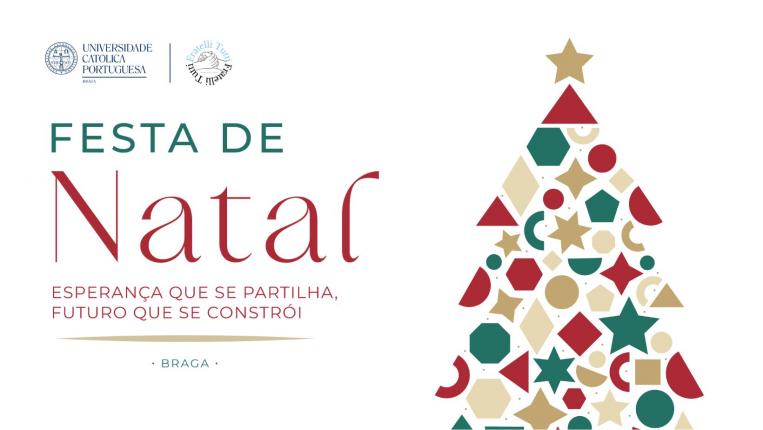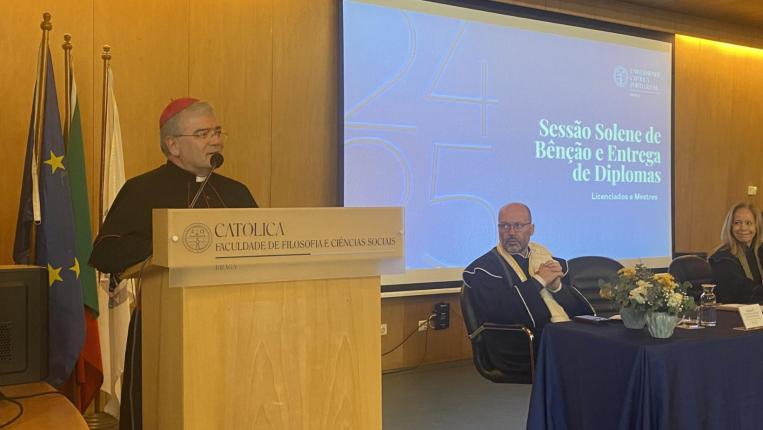
Paulo Dias, pro-rector of UCP-Braga, said yesterday, on behalf of the rectoral team, that what sets Católica apart is “the integral development of the human person at the service of the common good”.
The pro-rector of the Portuguese Catholic University (UCP) in Braga, Paulo Dias, argued yesterday that the deep crisis and serious problems facing humanity should lead the university to define itself, as Cardinal Tolentino de Mendonça said, as “a laboratory of hope”.
“Not a vain, innocent, 'naïve' hope, but a context where people experiment, implement and commit to change. Where languages outside everyone's usual frame of reference are experimented with. Where each student is accompanied from the moment they enter the university until the moment they leave. Where you value your academic performance, but also your individual progress and your attention to others. Where you can play sport, appreciate art, promote creativity and a sense of agency or will. Where technical knowledge, knowledge, cannot be dissociated from knowing how to do, let alone knowing how to be. Where the greatest result is the integral development of the human person at the service of the common good. This is what sets us apart,” said Paulo Dias, speaking on behalf of the rectoral team.
Innovative methodologies
According to Paulo Dias, various actions are underway at the UCP, including the implementation of innovative methodologies, some of which have been the subject of research and even won awards, such as service-learning.
The pro-rector also pointed out that interdisciplinary research, which UCP wants to see more and more recognized, “on what it means to be a person and how we become a person, but also, as happens at CITER, where the complexity of our time and the impact of religions and spirituality are explored, new training offers, with study plans more focused on competences that can distinguish students”.
He also said that UCP has been strengthening, but also promoting, volunteering and community ties, valuing individual qualities and opportunities for contact with others.
“We need to put hope into action,” he said, after, at the beginning of his speech, lamenting the existence of ”a globalization of indifference, whether in relation to the quality of democracy, disinformation, ecological problems or mental health, violations of equity and social justice, among others.”
In his speech at the beginning of the ceremony, the pro-rector had also referred to the Braga Campus as “a center of markedly interdisciplinary research, where some of the essential questions of our time are focused, at a time of profound technological, social, ecological and cultural transformation”.
“As much as this is a time of statistics, data and numbers, let's focus our attention on the flesh and blood people who make up this community. These are the people we want to recognize and celebrate today, for what they have given to their course, to their area, to themselves and to others,” he said.
Lesson of Wisdom promotes reflection on “New Digital Challenges”

Yesterday, the vice-chancellor of UCP, Margarida Mano, gave a Lecture on “New Digital Challenges: some reflections”, addressing the role of Artificial Intelligence (AI) today, the main digital challenges and the ethics inherent in AI.
Recalling how AI is now present in various areas of our daily lives, from communication to work, health, transport and education, the vice-chancellor mentioned its advantages, but also the global risks inherent in the field of technology.
She also listed the main digital challenges we face, arguing that AI should be seen as a “precious and unavoidable aid in academic development”, but should be used “as a tool and not as a crutch”.
“We want to develop machines that think for us and not by us,” he concluded.





